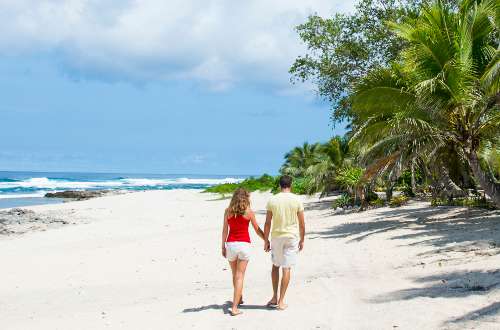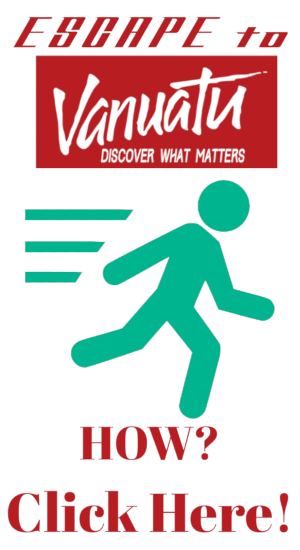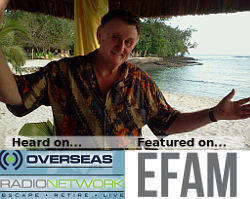Living and Investing in Vanuatu
AND WHY I CALL IT HOME
The Republic of Vanuatu is a very small country in the South pacific. With a population of 260,000 spread over a hundred islands and a total area of 5,500 sq. miles. (around that of the LA Metropolitan area,) it seldom makes world news. Until 1980 it was administered as a colony by France and Britain as a condominium, or joint administrative arrangement. Their subjects preferred the name “pandemonium” as a descriptor of the period.
If your taste is for sex tours, car chases and car bombs, big brother government or the need to satisfy some obsessive compulsion to pay tax, then Vanuatu is not for you. Its selection by “Lonely Planet” as the “Happiest Place on Earth” in 2011 is perhaps a standout contribution to world news in the past decade for any relocates
The Republic ofVanuatu:
Location: South Pacific: 1,250 miles N/E of Brisbane, Australia.
Population: 260,000.
Government: Parliamentary Democracy. President elected by Parliament. Separation of powers. Courts independent,: (A former Prime minister was jailed because of his difficulties in distinguishing between his and the State’s money.)
Universal suffrage: 18 & over.
Constitution guarantees religious freedom. Christian 95%.
Economy: Mostly agriculture. 80% of people live in villages and are largely self sufficient. Tourism the main source of income.
Taxation:
Tax haven. There are no personal or corporate taxes, death duties or capital gains taxes. The government raises money through a value added tax on goods and services, (12.5%), and a range of duties on imported goods.
Culture:
The nation identifies as Melanesian. However, Polynesian influences are recognisable in many of the languages, (around 80), and practices.
Investors:
Welcome. An investment of 5 million vatu, (US$50,000), plus a police clearance certificate entitles you to apply for residency. An application costs 25,000 Vatu (@US$250), and the authority generally provides approval within 15 working days
Banking:
Two Australian Banks, ANZ and Westpac, Bred Bank (French) and the National Bank of Vanuatu.Government owned and guaranteed.
The Australian Banks are in the top 50 banks in size, and probably the top 10 in safety. However, their computers are in Australia, and the Australian Taxation office, a more virulent clone of the I.R.S., is able to access many of these accounts. For privacy, National Bank of Vanuatu.
Currency:
Vatu. (Vt.) 1Vt currently = US1 c. Australian and US dollars accepted
Languages:
Bislama,( LINGUA FRANCA), English and French. English is the language of business and most used.
Communicatuions:
Copper and fibre optic cable laid in Port Vila and the second city Luganville, and several ISPs provide a choice of satellite and lately undersea cable internet access to the internet.
Climate:
Sub tropical. However this year the temperature plummeted one night to 56degrees, to the good fortune of those few businesses selling coat
Living in Vanuatu:
The following observations are those of a resident for 14 years,-
. We call Vanautu “home”
If my words offend. Too bad! Political correctness has yet to take root here. The Melanesian way of dealing with disputes and bad manners provides a template that other countries could well follow, rather than resorting to punitive legislation that erodes free speech.
Firstly, Vanuatu is described in the tourist brochures as a “tropical paradise.” Tropical maybe, (most of the time). Paradise it is not. A human population anywhere will produce examples of the good the bad and the ugly. The key to Vanuatu’s “Happiest People” status can be found in a fortuitous combination of geography, culture, and luck.
Geography: The country is an inverted Y shaped group of islands, surrounded by coral reefs. Volcanic activity enriched the soils and the south east trade winds colliding with uplifted mountains and coral plateaus ensured a regular and plentiful rainfall. It is well south of the Equator, and thus does not experience extremes of heat and humidity.
Culture: Given the above, a culture developed built on the fact food shortages were rare, and winters non-existent. The European concept of saving and planning for winter, or a “rainy day” is not embedded in the culture. Invasions from hostile cultures were limited to the group next door out to right a real or perceived grievance. There was no need for militarism for the sake of “living space”
Luck: Besides the gift of geography, luck came in two forms, The first was the existence of and the exploitation of the kava plant, (Piper methysticium), a mild narcoticthat promotes relaxation and mild euphoria. In a society where the living was easy, there was plenty of time to devote to other activities, particularly politics and achievement of status in the village and within the extended family. People with time on their hands and ambition in their hearts are apt to get involved in disputes. In a small community settling disputes by force or killing invites retribution from the victim’s family, and given the genetic imperative to intermarry with the adjacent villages or islands, armed conflict between such would often mean conflict with in-laws or relatives.
Enter Kava. Complex rituals evolved where kava was partaken for a number of occasions, but particularly when parties were in dispute. After three shells of Kava (half coconut shells), it is difficult to remain angry at anyone.
The second piece of luck came in the form of the colonial powers, especially Britain. For students of history, the very thought of Britain and France co-operating on anything defies belief. However there were some positive outcomes. If the British built a new school, the honour of France demanded that a better school be built. At independence in 1980, infrastructure worth far in excess of any monetary or military benefit the colonial powers had ever gained was bequeathed to the new nation. More valuable though were the institutions of law enforcement and government inherited from the British. The complexity of Parliamentary democracy with the party system, multiple layers of government and the separation of powers was readily understood and appreciated in the light existing complex hierarchical structures and customs.
The colonial powers also brought access to Christian teachings. Again this found resonance with the people who were actually living in the metaphorical land of “milk and honey”, who understood the concept of forgiveness,
Entertainment:
(Other than lying on the beach, diving on untouched coral reefs, fishing, eating, ogling the opposite, or as the case may be, the same sex, gambling at one of the three casinos, and other such pastimes there is:
Talking about:
- the best /worst restaurant: (Lots to choose from and many very good. The not so good don’t last.)
- the latest “secret” affair.—See Birthrate. (In a small country with more mobile ‘phones per head than Australia, a generation addicted to “twitter,” “facebook” and other time wasting activities, plus thousands of gardeners, nannies and domestic workers, the time frame of the secret part of any affair can be calculated in minutes. There is a school of thought based, I am told on quantum physics, whatever that may be, which asserts that the news actually precedes the affair.)
- the roads getting a grant from the Australian government to upgrade well over due
- incompetent and lazy public servants. Australia
- politicians: Australia
A declaration here. I have friends here who are politicians.
(There: I have come out of the closet.)
- the price of electricity. (65c a KWH. Only available in the main towns. 70% of the population has none.)
- The highest birth rate in the Pacific.
- We look forward to you visiting and having lunch with me at Chills above the markets where all tables have the best view of the Port Vila Bay and where for $10 you get a great lunch and a glass of wine; this is a open invitation, contact Richard butler and he will set it up
- From the desk of Ernie the Expat* – another escapee from the western madness and living long and well and happy in The Republic of Vanuatu !
*Not his real name! ![]()








